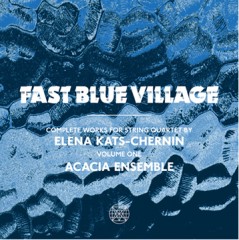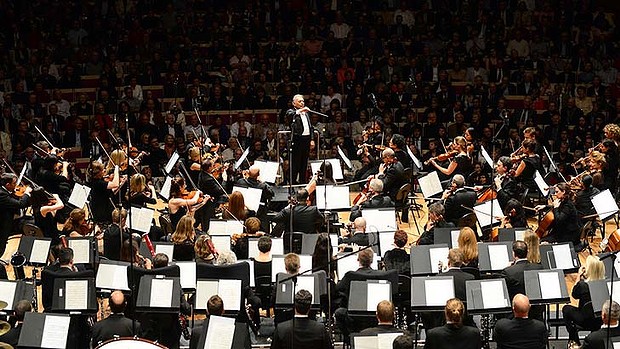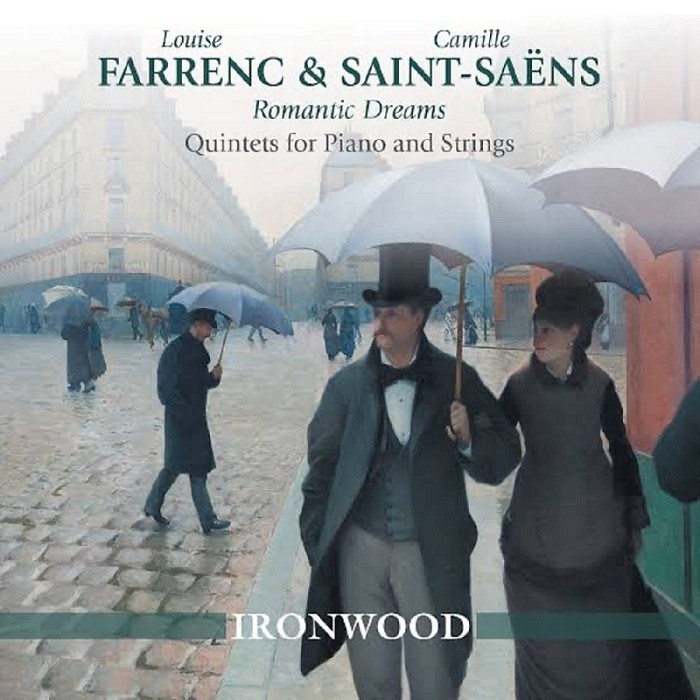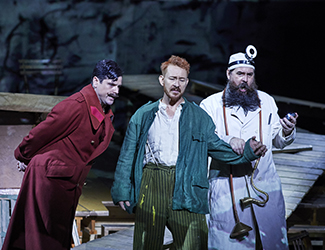‘Fast Blue Village’: Kats-Chernin has the last laugh

Fast Blue Village has the perfect formula – an immensely popular living composer, an ensemble selected by her to record her music and a recording producer with a sharply honed instinct for how the composer wants her music to sound.
The composer is Elena Kats-Chernin who heard the Acacia Ensemble play some of her music early in 2011. She decided they had the sound she was looking for and invited them to perform and perhaps more importantly, record, all her string quartets.
Kats-Chernin coached the Acacia Ensemble during rehearsals and was present during the recording, endowing it with an incomparable authenticity. Add to this the vast experience and acoustic expertise of Lyle Chan, composer, recording producer and close friend of Kats-Chernin, and the music on the recording is as close as you would ever get to the composer’s inner ear.
Recording technology was one of the great advances of the 20th century. It has allowed the composer to directly shape the performance of their work for posterity. Today, performers and audiences still argue over performance practice in past times- sadly those debates may be lost in the future – but we will know exactly how the composer wanted their music to sound.
Fast Blue Village is the first in the series compilation of music for string quartet by Elena Kats-Chernin, produced by classical music enterprise and recording label Vexations 840. The compositions are not ‘string quartets’ in the formal sense of a work with four movements. They are single movements which can be played together or individually. The first volume of Fast Blue Village contains 11 tracks.
The first 5 tracks are original compositions, inimitable in style, starting with a simple theme that is elaborated with different metrics, rhythms, melodic variations and modulations that surprise. The selections on this first volume demonstrate the flair for which Elena Kats-Chernin is so appreciated. The dramatic elements of the theatre music which she composed early in her career are present in the edgy and slightly discomforting opening track, Fast Blue Village 2. The music speaks of a clash of concepts expressed in the juxtaposition in its title, of words like ‘fast’ with ‘village’. From here the music becomes much more gentle, though always thought provoking. There is the much loved, minimalist Eliza Aria written for string quartet; Moody Tango and Slicked Back Tango are passionate and satirical expressions of the dance; Road to Harvest draws again on drama and the folk music feel of klezmer.
Following these tracks are 6 transcriptions from JS Bach’s Notebook for Anna Magdalena. These cameos have been completely transformed. The effervescence of Bach’s writing for the harpsichord is heightened in Kats-Chernin’s arrangements which cleverly elaborate many of the devices of Baroque writing with brilliant wit. The Polonaise has a galloping continuo based on a major triad with pizzicato and tremolo above; the Musette sparkles with glissandi and syncopation over a bass pedal point akin to Bach’s original concept; the Aria and Menuet are serene and graceful interpolations in the sequence; the second Polonaise is given a fugal treatment and the arrangement of the second Menuet is at once admiring and irreverent. Kats-Chernin has the last laugh.
The Acacia Ensemble came together in 2010, formed by violinists Lisa Stewart and Myee Clohessy, violist Stefan Duwe and cellist Anna Martin-Scrase. The two Australian born violinists had successful careers studying and performing in chamber ensembles and orchestras in Europe, as did German born Stefan Duwe and American born Anna Martin-Scrase, before they found themselves in Australia. They like to augment their repertoire of classics with premiering contemporary compositions. It is understandable that Kats-Chernin anointed the Acacia Ensemble as interpreters of her string quartets. They have the technical mastery to accomplish the demands of the writing and to move seamlessly from one style to another, along with the ability to realise the sense of humour implicit in the writing.
It seems that with the Kats-Chernin project, history will be made.
Shamistha de Soysa for SoundsLikeSydney, May 2012
Fast Blue Village is available as a digital release, produced by Vexations 840.
Visit http://www.fastbluevillage.com/site/products-page/cd/fast-blue-village-cd/ for details of how to purchase or listen to tracks.







